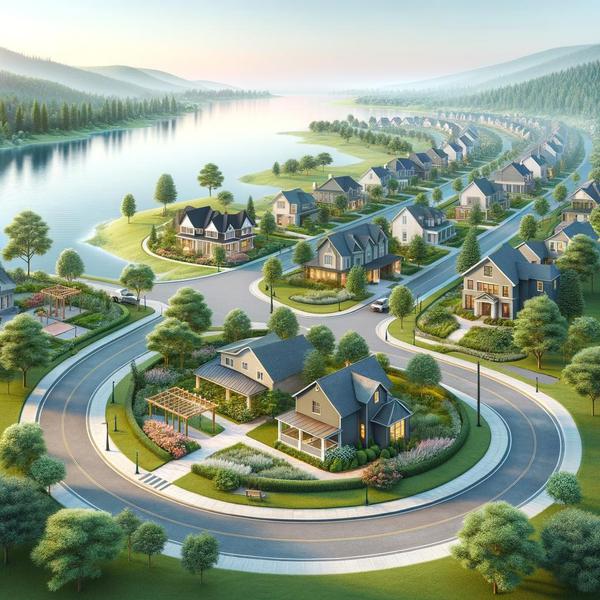Understanding North Georgia’s Unique Ecosystem

Understanding North Georgia’s Unique Ecosystem
North Georgia's ecosystem is a stunning blend of diverse habitats and unique landscapes that make it an ecological treasure. From the majestic Appalachian Mountains to verdant forests and vibrant waterways, this region boasts a remarkable variety of flora and fauna. As a pivotal zone for biodiversity, understanding North Georgia’s ecosystem is crucial for both environmental conservation and appreciating its natural beauty. Join us as we explore the distinctive elements that contribute to the ecological richness of this fascinating area.
Introduction to North Georgia's Ecosystem
Spanning a variety of climates and elevations, North Georgia’s ecosystem is a microcosm of the southeastern United States. This region is home to a myriad of species and serves as a critical habitat for many. Its ecosystem is influenced by its geographical positioning in the Appalachian region, which makes it a hotspot for biodiversity. The landscape is characterized by rolling hills, lush forests, and pristine water bodies, each contributing to the region’s diverse ecological profile.
The Role of Geography and Climate
North Georgia’s geography plays a significant role in shaping its ecosystem. The Blue Ridge Mountains, part of the Appalachian range, provide a myriad of microclimates, supporting unique plant and animal life. The climate varies with elevation, creating a mix of weather conditions that nurture a range of habitats. From cool, damp areas ideal for hemlock and rhododendron to warmer, drier areas suitable for oak and pine, this variety fosters biodiversity.
Unique Flora and Fauna
North Georgia is blessed with a tapestry of native species that thrive in its diverse environments. The region is home to numerous endemic plant species, including various types of trillium and azaleas. Wildlife in the area is equally varied, with black bears, white-tailed deer, and many bird species, such as the ruffed grouse and pileated woodpecker, making their home here. The combination of terrestrial and aquatic ecosystems allows for a robust food web and natural environment.
Conservation Efforts and Environmental Challenges
While North Georgia’s ecosystem remains richly diverse, it faces environmental challenges that threaten its stability. Urban sprawl, logging, and pollution pose significant risks to its natural habitats. Conservation efforts are paramount to preserving this unique ecosystem. Organizations and local governments are working together to implement strategies such as protected areas, habitat restoration, and sustainable management practices. These measures are crucial in safeguarding the area's natural resources for future generations.
Cultural Importance and Human Interaction
For centuries, North Georgia has been a land intertwined with human history and culture. Indigenous peoples, such as the Cherokee, have historically depended on the land's abundant resources. Today, many locals and visitors alike find solace and recreation in the natural beauty of North Georgia’s landscapes. Hiking, fishing, and eco-tourism not only bolster the local economy but also foster a deeper appreciation and connection to nature, promoting awareness and stewardship of the ecosystem.
Prominent Natural Attractions
North Georgia is home to several noteworthy natural attractions that highlight the region’s unique ecosystem. Amicalola Falls, the tallest cascading waterfall in the Southeast, draws visitors with its breathtaking beauty. The Chattahoochee National Forest covers vast areas and offers a sanctuary for wildlife and a paradise for outdoor enthusiasts. These landmarks are not only tourist attractions but pivotal in educating the public about the importance of conservation and environmental respect.
Sustainable Practices for the Future
Sustainable practices are vital to maintaining the ecological balance in North Georgia. Measures such as reducing carbon footprints, supporting local conservation initiatives, and participating in citizen science projects can significantly impact the health of the ecosystem. Encouraging eco-friendly tourism and promoting awareness about the environmental challenges help foster sustainable development in the region. By understanding and respecting the ecological intricacies of North Georgia, we ensure its vitality for the coming generations.
Conclusion
Understanding North Georgia’s unique ecosystem offers us insight into the complex interplay of climate, geography, and biodiversity. It is a reminder of the region's ecological importance and the urgent need for conservation efforts. With the active involvement of communities and the implementation of sustainable practices, North Georgia can continue to thrive as a haven for both wildlife and people. This treasure of the Southeast stands as a testament to nature's enduring beauty and resilience.
Frequently Asked Questions (FAQ)
What makes North Georgia's ecosystem unique?
North Georgia's ecosystem is unique due to its diverse climates, elevations, and the presence of the Appalachian Mountains, which create a rich tapestry of flora and fauna, providing habitat for various endemic species.
How is the ecosystem in North Georgia being protected?
The ecosystem is protected through conservation efforts, including the establishment of protected areas, habitat restoration, environmental legislation, and encouraging sustainable land-use practices.
Why is biodiversity important in North Georgia?
Biodiversity is crucial as it helps maintain ecosystem balance, supports a range of ecological services, and provides resilience against environmental changes.
What are some popular outdoor activities in North Georgia?
Popular activities include hiking, fishing, bird watching, and visiting national parks and forests, which connect people to the natural beauty of the region.
How can one contribute to the conservation efforts in North Georgia?
Individuals can contribute by volunteering with local conservation organizations, participating in citizen science projects, practicing sustainable tourism, and supporting conservation initiatives financially and through advocacy.
Categories
- All Blogs (579)
- Achasta Golf Community (76)
- Cleveland, GA (40)
- Dacula, GA (41)
- Dahlonega GA (113)
- Dawsonville, GA (42)
- Gainesville, GA (43)
- Gold Peach Realty (5)
- Helen, GA (44)
- Home Buying Tips (17)
- Home Décor And Interior Design (7)
- Home Improvement Tips (15)
- Home Selling Tips (20)
- Homes For Sale (45)
- Lake Lanier, GA (68)
- Local Events (13)
- Local Guides (17)
- Mortgage And Finance Tips (23)
- North Georgia (10)
Recent Posts










GET MORE INFORMATION

